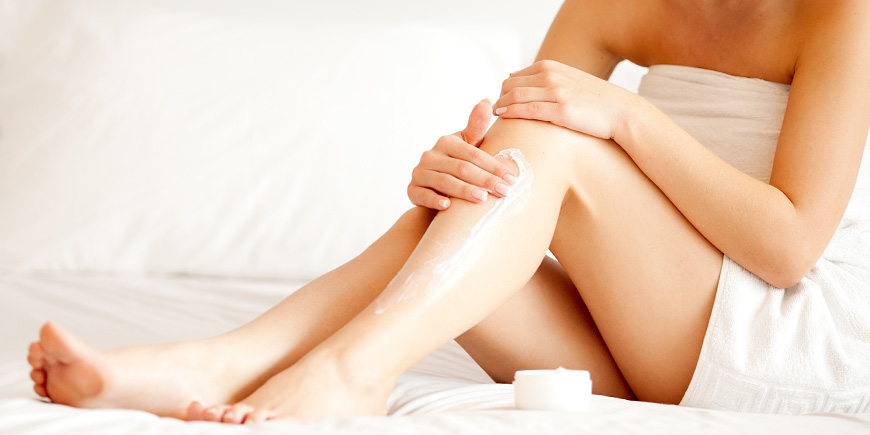Dermatologist Dos & Don'ts For Dry Skin
Dry skin, also called xerosis, is a common condition which may occur at any age and for any number of reasons. The signs — what you see — and the symptoms — what you feel — associated with dry skin include rough, scaly, or flaking skin; itching; gray or ashy skin; cracks in the skin, which may bleed in severe cases; and chapped or cracked skin on the lips; discomfort; visible peeling of skin from the face or body; among other signs and symptoms.
Perpetual and severe dryness of the skin may indicate the presence of eczema, psoriasis or dermatitis, which require professional treatment by a Gainesville dermatologist. Patients who experience dry skin may have difficulty managing the skin condition. Fortunately, in most cases, the symptoms and signs of dry skin can be reduced or eliminated with at-home techniques and in-office treatments. Consider the following do’s and don’ts of treating dry skin at home.
Do:
-
Use lukewarm water — avoid water that is very hot or very cold.
-
Bathe just long enough to cleanse the skin.
-
Eat a balanced diet. Fruits, vegetables and fiber provide important nutrients to the skin.
-
Drink water, preferably 8 glasses each day. The upper layer of the skin consist of 10 perfect water, while the deepest layers of the skin comprise 60 percent water.
-
Use a humidifier to keep dry air from stripping the skin of moisture.
-
Use a mild, dermatologist-recommended cleanser with moisturizing ingredients.
-
Pat-dry the skin with a soft towel after bathing or showering.
-
Use moisturizer generously, even if skin is prone to breakouts. Choose oil-free and fragrance-free moisturizers that will not clog pores or irritate dry skin.
Don't:
-
Use hot water while showering or bathing.
-
Bathe for too long. Soap and water can cause skin to become excessively dry.
-
Scrub the skin with a brush or harsh sponge.
-
Rub the skin dry while toweling-off following showering or bathing.
-
Shower or bathe too frequently, especially during dry seasons.
-
Forget about what you eat. Eat a healthy diet to avoid negative skin effects.
-
Use skin-irritating products, such as benzoyl peroxide, retinoids or propylene glycol.
-
Use skin-care products that strip the skin of moisture, such as toners and peels.
When To See A Dermatologist For Dry Skin
Home remedies and changes to your skin care routine may serve to help you find relief from dry skin. However, patients who continue to experience symptoms associated with dry skin and those who experience more severe symptoms associated with dry skin should consult dermatologists in Gainesville. The continued flare-ups or worsening of symptoms may require prescription medications and in-office treatments, or the condition may have developed into more serious skin issues, such as eczema or psoriasis. For more information about our skin conditions treated or to schedule a dermatology consultation, contact us.

